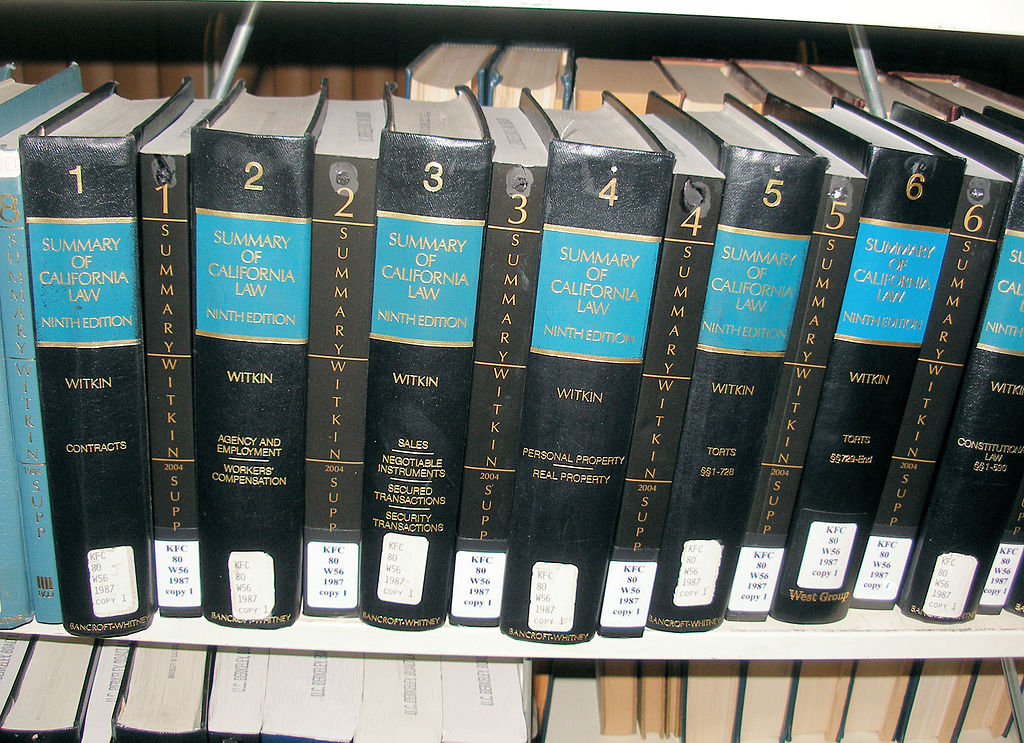
California Senate Chambers. (Photo: Kevin Sanders for California Globe)
Are Severability Clauses Necessary in California Bills?
Such clauses are not necessary in most legislation
By Chris Micheli, October 16, 2022 4:38 pm
Around the country, and at the federal level, there is an ongoing debate among legislative lawyers whether a severability clause must be included in legislation. If a bill contains a severability clause, then the matter of whether provisions contained in a bill are “severable” is readily resolved by a court. However, if a severability clause is not in place, then a judge must determine whether the entire measure is void, or if any of the remaining provisions can be enforced.
Basically, a severability clause allows the valid provisions of a bill to remain in effect even if one or more other provisions in the same bill are found to be unenforceable. As a result, the severability clause is a statement of legislative intent that, if a provision of a law is struck down by a court, the unconstitutional provision(s) does not invalidate the remaining provisions of the law and those valid provisions remain in effect.
What does the standard severability clause in California bills look like? The following is an example from a recent bill:
The provisions of this bill are severable. If any provision of this bill or its application is held invalid, that invalidity shall not affect other provisions or applications that can be given effect without the invalid provision or application.
In California, the courts generally follow a two-step analysis based upon a California Supreme Court decision. The first step is relatively straight-forward. The court looks to determine whether the enacting legislation contains a severability clause. The presence of a severability clause “establishes a presumption in favor of severance.” Cal. Redevelopment Ass’n v. Matosantos, 53 Cal. 4th 231, 271 (2011) (citing Santa Barbara Sch. Dist. v. Superior Court, 13 Cal. 3d 315, 331 (1975)).
As a result, if a bill contains a severability clause, the court usually follows that language. A severability clause can protect the remaining, valid provisions of a law. Or the clause can state that, if any of the law’s provisions are struck down, then the entire act is invalid.
On the other hand, if the bill does not contain a severability clause, then the court must proceed to the second step. Basically, in the second step, the court determines whether the invalid provision(s) are functionally separable from the remaining, valid provisions of the law.
In other words, if a statute does not contain a severability clause, the reviewing court may nevertheless find a portion(s) of the statute severable if that provision is “grammatically, functionally, and volitionally separable.” Matosantos, 53 Cal. 4th at 271 (citing Calfarm Ins. Co. v. Deukmejian, 48 Cal. 3d 805, 821 (1989)).
So, what does this second test mean? According to the California Supreme Court, “grammatical separability” considers whether the invalid portion of the statute can be stricken “‘without affecting the wording’ or coherence of what remains.” Id. (quoting Calfarm, 48 Cal. 3d at 822). “Functional separability” turns on whether the rest of the statute “is complete in itself.” Id. (quoting Sonoma Cty. Org. of Pub. Emps. v. County of Sonoma, 23 Cal. 3d 296, 320 (1979)). And “volitional separability” occurs when the statute “would have been adopted” even if the legislative body had “foreseen the partial invalidation of the statute.” Id. (citations omitted).
California courts use these three tests to make a determination whether the invalid and valid provisions are functionally separable. If these provisions are not “functionally separable,” then the valid provisions cannot be severed from the rest of the bill and the entire measure is invalid.
Returning to the initial question posed, is a severability clause necessary in California bills? As a general rule, a bill drafter should only use a severability clause when there is a possibility of a statute being partially invalidated and it is not clear that the intention of the Legislature is that the bill be severed.
However, others believe a severability clause is unnecessary for legal purposes because many courts have repeatedly ruled that, regardless of the presence or absence of a severability clause in a statute, the courts will sever invalid portions from an otherwise valid law whenever possible as a judicial-based statutory interpretation principle.
In other words, some observers argue that a severability clause ordinarily is not necessary because both statutes and common law make statutory provisions severable. Nonetheless, we find these severability provisions scattered throughout California laws.
Even the state Constitution utilizes such a provision. For example, Article I, Section 31(h) provides, in part, that “Any provision held invalid shall be severable from the remaining portions of this section.” Similarly, Article X B, Section 16 specifies that, “and to this end, the provisions of this article are severable.”
In addition, numerous California statutes contain severability clauses. For example, Government Code Section 9906, which is entitled “Severability,” provides the following: “If any provision of this chapter, or the application of any such provision to any person or circumstances, shall be held invalid, the remainder of this chapter to the extent it can be given effect, or the application of such provision to persons or circumstances other than those as to which it is held invalid, shall not be affected thereby, and to this end the provisions of this chapter are severable.”
Because some courts have given weight to the inclusion of a severability clause in specific statutes, a severability clause is occasionally included in a measure, especially in long or controversial bills or when a legislator specifically requests its inclusion in a bill. But such clauses are not necessary in most legislation.
- Service of Summons in California Civil Actions - December 11, 2024
- Sunset Clause Versus Repeal Clause - December 10, 2024
- Describing a Spot Bill - December 9, 2024





2 thoughts on “Are Severability Clauses Necessary in California Bills?”